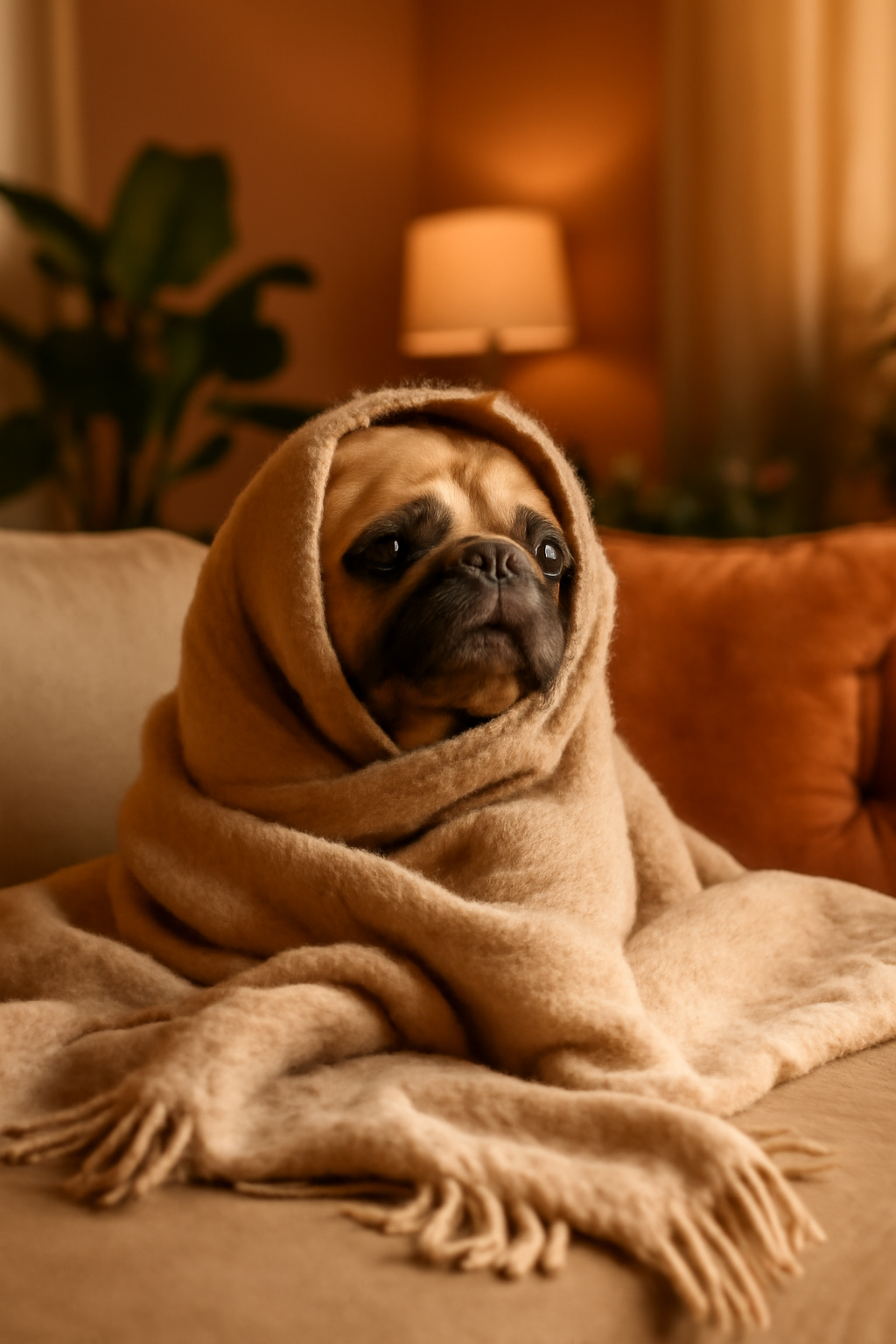When it’s very hot, dogs and cats can get sick, especially those with short noses, older pets, or those that are overweight. They don’t sweat like we do, so they can suffer from heatstroke even during short walks.
- Provide plenty of fresh water for them to drink, and change the water regularly.
- Keep them in shaded areas with good airflow; cool blankets help on hot days.
- Walk your pet only early in the morning or after the sun goes down.
- Never leave animals inside a vehicle, not even for a short time.
- For light-colored pets, ask your veterinarian about safe sunscreens for their ears and noses.
- Watch for danger signs, like rapid breathing, fatigue, or excessive drooling. If these occur, cool your pet down and call the veterinarian.
Winter: Caring for Pets’ Paws
Cold weather can be just as harmful as heat, especially for small animals, seniors, those with short fur, or pets that have been ill. The main goal is to prevent them from getting too cold, to avoid dry skin and discomfort.
- Provide warm beds away from cold drafts.
- For outings, use sweaters or booties if your pet feels very cold or if you live in extremely cold areas.
- Clean their paws after walks to remove ice and dirt from the streets.
- Use plastic water bowls, as metal can cause discomfort or stick to tongues in very cold conditions.
- Keep an eye on cats, who may seek warmth under car hoods. Always check before starting the engine.
Care and Adaptation During Transitional Seasons: Fall and Spring
In spring and autumn, we face challenges like allergies, increased pests, and behavioral changes due to fluctuating weather.
- Brush your pet more often to manage shedding and improve indoor air quality.
- Be extra cautious about flea, tick, and worm prevention, as these pests are more common when the weather is mild.
- After walks, clean your pet’s paws to remove pollen or plant residues, especially for allergy-prone animals.
- Adjust exercise routines and food portions based on your pet’s activity level, especially on colder or rainy days.
- Be particularly careful during festive seasons: keep forbidden foods (like chocolate and grapes) and decorations out of reach.
Nutrition and Hydration Throughout the Year
Summer: Prefer wet food or water-rich natural foods to encourage hydration.
Winter: Warm water encourages drinking; outdoor animals may require more calories to maintain body heat.
Year-round: Adjust food portions based on daily energy expenditure, and never neglect clean, fresh water—replace it whenever necessary.
Practical Summary of Seasonal Needs
| Season | Hydration & Nutrition | Coat & Protection | Environment & Safety |
|---|---|---|---|
| Summer | Abundant fresh water, wet food | Regular brushing, safe sunscreen* | Avoid heat, opt for cooler times |
| Winter | Clean, warm water, calorie boost | Blankets, booties, sweaters | Warm shelter, draft-free |
| Fall/Spring | Water always available, balanced diet | Extra brushing, parasite protection | Clean paws, allergy control |
*Always consult a veterinarian before applying any product to your pet’s skin.
Tips for Pet Owners
- Watch for signs of discomfort and attend to them quickly.
- Schedule veterinarian check-ups before seasonal changes.
- Provide appropriate toys to keep your pet active, regardless of the weather.
- Keep vaccinations and pest prevention up to date.
- Make your pet’s living environment pleasant and safe all year round.
Important Tips:
Caring for dogs and cats throughout the year requires attention, adaptability, and knowledge. By adjusting routines, diet, and their environment according to the season, you ensure that your furry friend stays happy and healthy year-round. Consult your veterinarian to fine-tune everything, and enjoy each season with joy and health!
